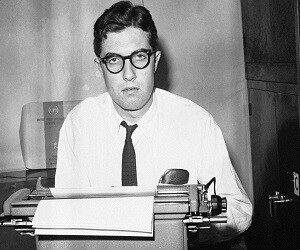

Last Updated: 25 Apr, 2024 | Views: 702
Age: 84
Profession: Journalist
Other Profession(s): Author
Famous For: Wrote A Bright Shining Lie (Book)
Higher Education: Graduated
About (Profile/Biography):
Cornelius Mahoney Sheehan was a journalist from the USA. In 1971, Sheehan got the top-secret Pentagon Papers from Daniel Ellsberg while working as a writer for The New York Times. His series of articles exposed a covert US Department of Defense history of the Vietnam War and prompted the US Supreme Court to rule in New York Times Co. v. United States, 403 U.S. 713 (1971), invalidating the US government's use of a blocking order to stop publication. He earned a B.A. in history (cum laude) from Harvard University in 1958 and Mount Hermon School (later Northfield Mount Hermon).
Career:
From 1959 to 1962: He was a member of the U.S. Army who was stationed in Korea before being relocated to Tokyo, where he worked as a second job at United Press International's Tokyo office (UPI).
In 1964: His tenure at The New York Times began with the city desk, then he moved to the Far East after a while.
In 1966: Sheehan was hired to cover the Pentagon.
In 1971: In the New York Times Book Review, Sheehan authored an article entitled "Should We Have War Crime Trials?".
In 1972: Sheehan published The Arnheiter Affair, his first book.
Achievements and Awards:
In 1988: Sheehan won the Pulitzer Prize and the National Book Award for his book A Bright Shining Lie.
In 1990: Sheehan was awarded the Golden Plate Award by the American Academy of Achievement.
His nonfiction book also won the National Book Award.
Unknown Facts:
Sheehan was sent by The Times to Jakarta, Indonesia, where he chronicled the activities leading up to the widespread massacre of alleged leftists by the Indonesian military, which is supported by the United States.
Sheehan went on a leave of absence from the Times, planning to write his book for two to three years. His expectations were much higher than reality.
Wait!
Here're some popular profiles for you.


